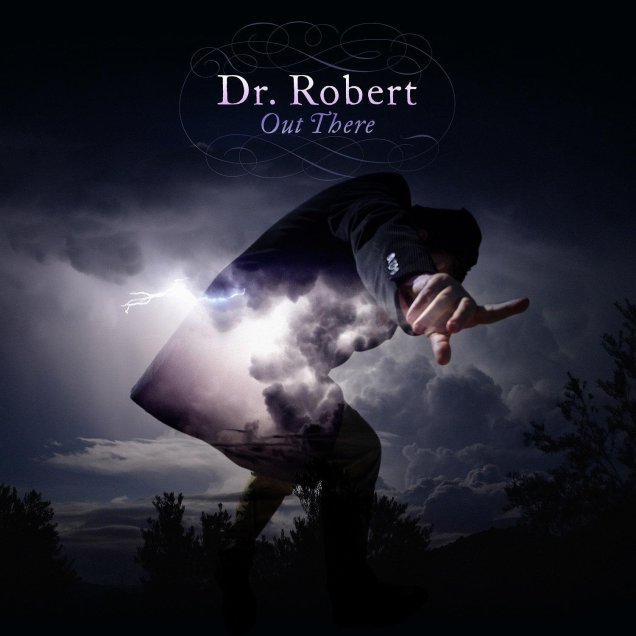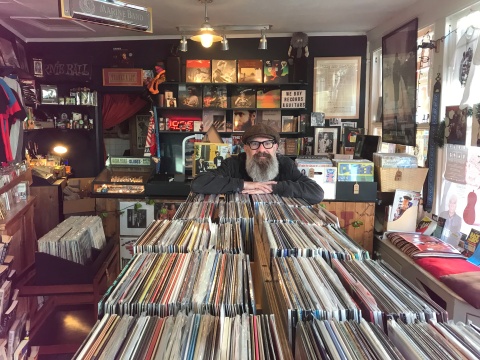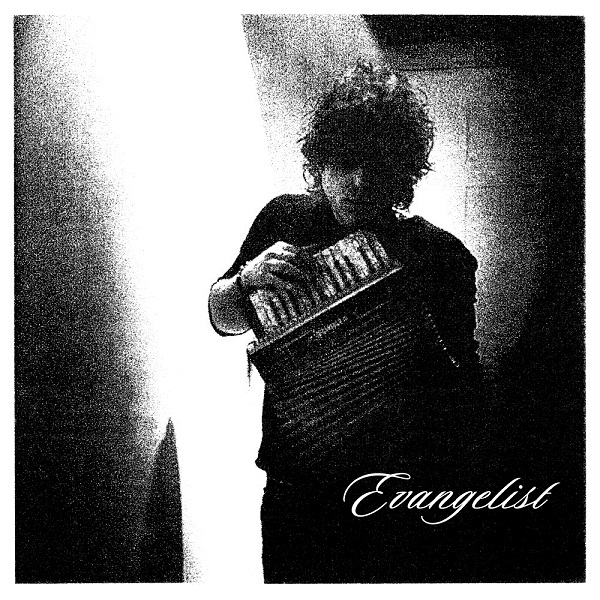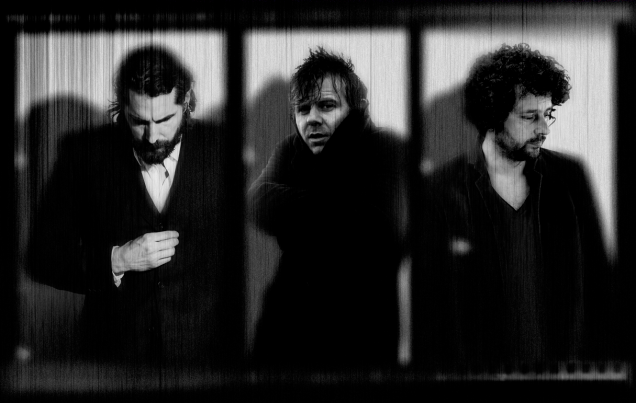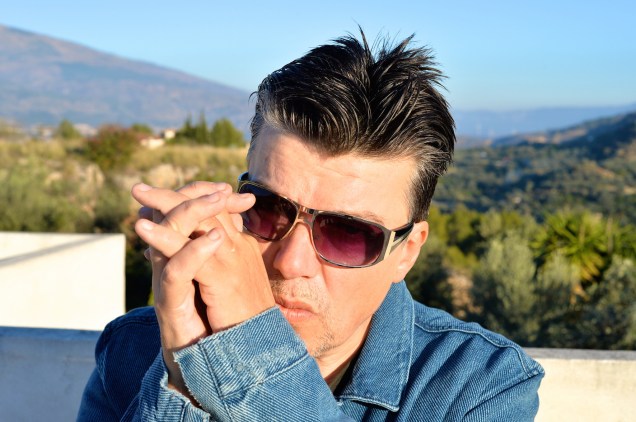
Out There, the new solo album by Dr Robert, frontman of pop-soulsters The Blow Monkeys, is a stripped-down, acoustic affair that was recorded on an old eight-track Tascam tape machine at his home in deepest Andalusia, Spain. I had an appointment with the Dr to find out how this raw and rootsy record came about…
With the new album, you’ve said it’s all about the groove of the songs – there are no middle eights, key changes or bridges. Why did you take that approach to this record?
Dr Robert: It was because I used a lot of open tunings on the guitar, which deliberately restricted my options. I wanted to avoid my usual progressions. I might try an album of just middle eights next…
It’s a very rootsy and primal record in places. Tracks like All The Way Back Home and Rack and Ruin are down and dirty, bluesy grooves, and there are some jazzy vibes on the album, too. (Lost in Rasa). Were you influenced by artists like Tim Hardin and Fred Neil, whose work you’ve covered in the past?
DR: Well, people like Hardin and Neil are part of my DNA now, so I tried not to edit myself. I just let it flow, like I was jamming in my kitchen.
One of my favourite tracks on the album is A Bottomless Pit. I think it sounds like Jacques Brel doing Johnny Cash. Can you tell me more about this song? Where did it come from?
DR: I don’t know where songs come from. That was an effortless one. Sometimes they come along fully formed. I was lucky.
For this record, you worked with drummer Richard “Snakehips” Dudanski, piano and accordion player Jos Hawken and saxophonist, Joe Degado. How did you hook up with those guys?
DR: They are friends. Richard goes way back. He’s a proper gent and an inspiration and he’s been in bands with both Strummer and Lydon, which is good enough for me! Jos is young and blessed with an innate calm and special talent. They both live nearby, so I always had them in mind.
What was the atmosphere like when you made this album? Was it loose and laid-back? From listening to the record, it certainly sounds like it…
DR: I tended to record the ‘takes’ in the morning. My voice works better then – especially on the low notes. I was alone most of the time. I was doing a take, then running to the tape machine to stop the tape unwinding!
How did writing and recording the album at home in Spain affect the sound of the record?
DR:I live in the mountains, south of Granada. Landscape and environment have always been a major inspiration. And smells. From the sugar beet on the Fens, to the orange blossom of the Lecrin Valley.
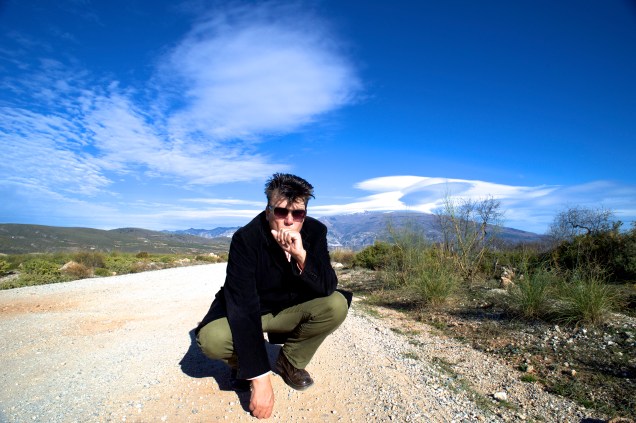
Throughout your career, you’ve worked with acts including Paul Weller, Curtis Mayfield, PP Arnold, Beth Orton and Kym Mazelle. Do you have any great memories from any of those collaborations? Is there anyone that you’d like to work with?
DR: They have all taught me something. Curtis was a humble soul. The best always are. I’d like to work with Tom Waits.
Out There is your tenth solo album. After more than 30 years in the business, do you feel like a prolific solo artist, or will you forever be a Blow Monkey? How does it feel now, looking back on your days as a ’80s pop star?
DR: I’m a prolific Blow Monkey. The ‘80s were the last great ‘pop’ decade. Things have changed. Mostly for the better.
How did it feel when you reformed The Blow Monkeys in 2007? Why did you decide to come back? Was it a case of unfinished business and how was it when you got back together to play and make new records?
DR: I missed being in a band, but I wanted to make new band music. We are a strange mix. We all love different music, but we never argue. We’re a slightly dysfunctional family – like all the best bands.

Any news on The Blow Monkeys? Do you have more new material or gigs planned?
DR: There are lots of gigs up on our website and a new album proposed for spring 2017. I’m writing some punky soul anthems right now.
The Blow Monkeys were known for their left-wing political views. Does it seem strange to you that nowadays more mainstream artists don’t use their music to convey political views, or protest against wrongdoing or unjustness?
DR: Some still do. PJ Harvey’s Let England Shake was a masterpiece in my opinion and Beyoncé did a fine thing at the Super Bowl.
There’s a track on your new album called I Ain’t Running Anymore, yet, after more than 30 years in the business, you seem to be busier than ever. What’s your secret? You had a health scare a while back and you quit drinking. What effect has that had on you? Are you in a good place?
DR: I don’t have a secret. Just keep your eyes open and your lips pursed. I try to remember how it felt to hear Ride a White Swan for the first time. My whole world opened up.
What music – new and old – are you currently listening to and enjoying?
DR: Old – Bukka White. New – Kendrick Lamarr.
Finally, how ‘out there’ are you?
DR: Not enough, yet. I’m working on it.
Out There by Dr Robert is released on May 2 (Fencat Records).
For more information, go to http://www.theblowmonkeys.com/
